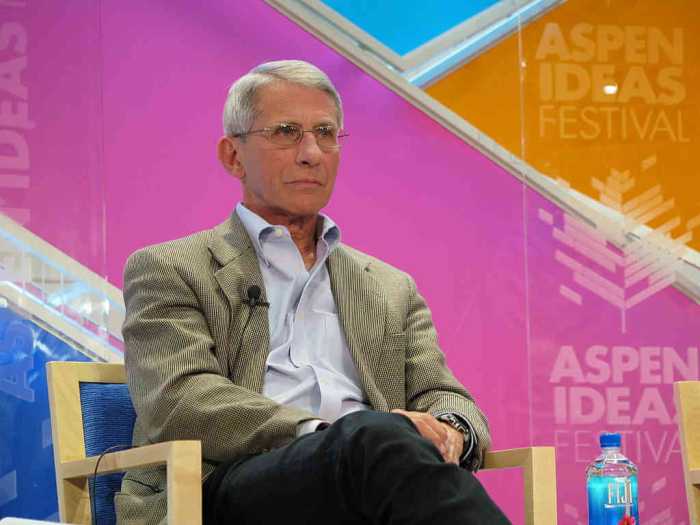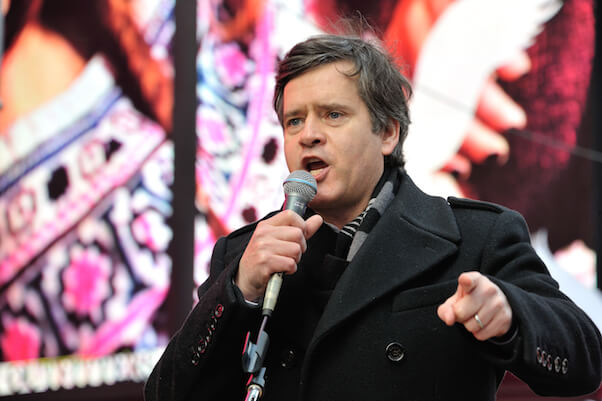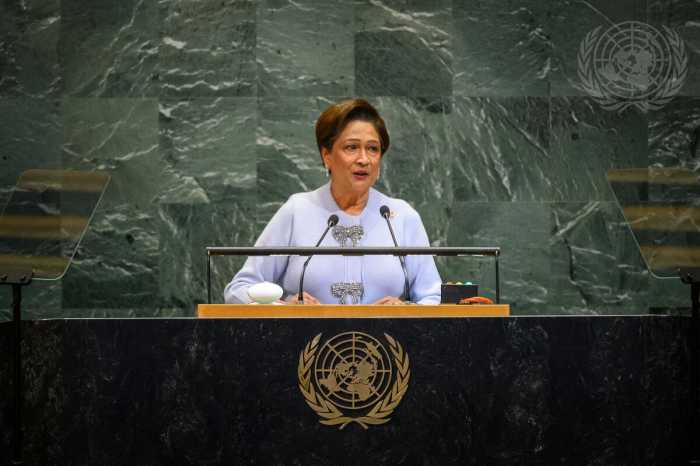By DUNCAN OSBORNE | Reflecting the view that effective HIV prevention must consider the totality of gay men’s lives, the Gay Men’s Health Crisis, or GMHC, has launched the Institute for Gay Men’s Health. “What we undertake to do today is mark a revolution… that has evolved from a single issue to an understanding that HIV prevention is embedded in gay men’s lives,” said Ana Oliveira, GMHC’s executive director. “The work of HIV prevention must happen in the context of lives.” The institute will study HIV prevention as well as a number of health matters that can lead gay and bisexual men to have unsafe sex, according to some studies. These can include depression, anti-gay violence, childhood sexual abuse, or substance abuse, according to Ron Stall, chief of the Behavioral Intervention Research Branch at the federal Centers for Disease Control and Prevention. “We have excellent data now that show that there are very high rates of a number of psycho-social health epidemics, each of which are related to each other, each of which combine,” Stall said at the October 3 launch of the Institute. “The gay community is fighting many different battles in the search for health and happiness of which AIDS is only the most widely recognized.” City Councilmember Philip Reed attended the event and he was honored with a certificate of appreciation from GMHC. “When I think of all the people and all the buildings GMHC has been in I come up with the word venerable,” Reed said. “The Institute is just another example of GMHC staying on the case.” The philosophical underpinnings of the institute have long been part of GMHC’s approach to their clients. “What it is, is the formalization,” said Matthew H. Tye, GMHC’s managing director of program services, “It’s not particularly new in our approach, but it is making a formal statement.” The Institute’s opening comes after several years in which proponents of the so-called gay men’s health movement have been saying that good health for gay men concerns more that just HIV and AIDS. Some of the leading voices in that movement have declared the AIDS crisis over, but GMHC is not abandoning its traditional mission. “HIV remains the primary health condition that faces our community and the spirit of broadening agenda is always with the focus of enhancing our efforts around HIV prevention,” Tye said. “The idea of talking about the other range of health issues… is not to deter from or detract from HIV. It is actually a recognition that to do good HIV prevention work… we must talk about issues of sexually transmitted diseases, drug use, depression, mental health, and violence.”
LGBTQ+ events in NYC
Tomorrow, 6 pm
Tomorrow, 7:30 pm
March 3, 8 pm
March 5, 9:30 pm
March 6, 8 pm
March 7, 3 pm
March 8, 10 am
Arts
 Q&A: Director Todd Stephens on the re-release of ‘Another Gay Sequel: Gays Gone Wild!’
Q&A: Director Todd Stephens on the re-release of ‘Another Gay Sequel: Gays Gone Wild!’ DJ James Anthony brings down the house with Unspeakable Joy
DJ James Anthony brings down the house with Unspeakable Joy Affable satire ‘Idiotka’ coasts by on its charm
Affable satire ‘Idiotka’ coasts by on its charm Brooklyn-based Club Lambda set to permanently close
Brooklyn-based Club Lambda set to permanently close ‘Billy Preston: That’s The Way God Planned It’ charts the rise and fall of a troubled gay musician
‘Billy Preston: That’s The Way God Planned It’ charts the rise and fall of a troubled gay musician
Politics
 Schumer and Goldman formally introduce bill to protect Rainbow Flag
Schumer and Goldman formally introduce bill to protect Rainbow Flag LGBTQ Republicans stay silent on removal of Rainbow Flag from Stonewall National Monument
LGBTQ Republicans stay silent on removal of Rainbow Flag from Stonewall National Monument Schumer introduces bill to make Rainbow Flag permanent part of Stonewall National Monument
Schumer introduces bill to make Rainbow Flag permanent part of Stonewall National Monument Trump administration derides Stonewall National Monument flag-raising ceremony as ‘political stunt’
Trump administration derides Stonewall National Monument flag-raising ceremony as ‘political stunt’ City and state lawmakers lead ‘Hands Off Our Flag’ rally at Stonewall National Monument
City and state lawmakers lead ‘Hands Off Our Flag’ rally at Stonewall National Monument
Crime
 Anti-LGBTQ bomb threats target NYU, prompting NYPD to increase security
Anti-LGBTQ bomb threats target NYU, prompting NYPD to increase security Man suffers anti-LGBTQ subway attack after kissing trans partner: police
Man suffers anti-LGBTQ subway attack after kissing trans partner: police ‘They killed my wife’: Outrage follows fatal ICE shooting of Renee Nicole Good in Minneapolis
‘They killed my wife’: Outrage follows fatal ICE shooting of Renee Nicole Good in Minneapolis Report details allegations of police harassment against LGBTQ New Yorkers
Report details allegations of police harassment against LGBTQ New Yorkers Santos is back with a ‘large slice of humble pie’ following Trump’s commutation
Santos is back with a ‘large slice of humble pie’ following Trump’s commutation
Perspectives
 We will not be erased: Donald Trump’s theft of our Rainbow Flag won’t fly
We will not be erased: Donald Trump’s theft of our Rainbow Flag won’t fly The Rainbow Flag and the heart and soul of Stonewall
The Rainbow Flag and the heart and soul of Stonewall Four decades in, Black communities are still paying the highest price from HIV — and inaction is not an option
Four decades in, Black communities are still paying the highest price from HIV — and inaction is not an option Remembering Mark Milano, a committed activist in the fight against HIV/AIDS
Remembering Mark Milano, a committed activist in the fight against HIV/AIDS A gender equitable city is a stronger New York for everyone
A gender equitable city is a stronger New York for everyone
















